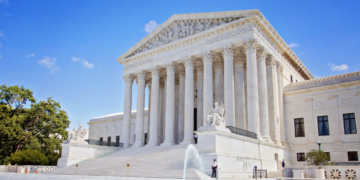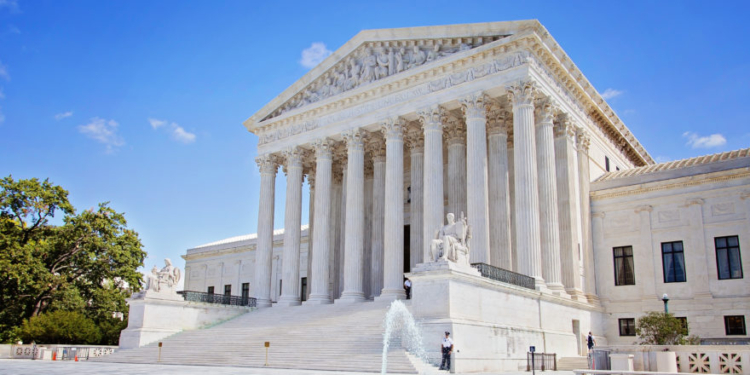America may be facing a constitutional crisis—but not the one everyone’s talking about.
Commentators are sounding alarms that the Department of Justice has lost its independence by aligning with Donald Trump’s political agenda. But the Constitution doesn’t require DOJ independence. It’s an executive agency. The Constitution gives the President the power to enforce federal law.
The crisis isn’t that the President has too much power over executive agencies. The crisis is that executive agencies themselves have too much power.
And this crisis isn’t new. Remember when Attorney General Eric Holder called himself “the President’s wing-man”? President Biden has pressured DOJ leadership, too. And how about that time Nixon purged the DOJ? The supposed “norm” of DOJ independence is just that—a norm, not a rule of law, and not one that’s been followed consistently.
What’s new is that liberals are upset. But “liberal” isn’t Latin for “the federal government should fix everything.” If you believe in checks and balances, they have to apply even when your side is in charge—and especially when it’s not.
Classical liberalism reminds us that the real crisis occurs when the administrative state has too much unchecked power. For a century, Congress has steadily delegated broad lawmaking authority to executive agencies. Now these agencies write rules, enforce them, and even resolve legal disputes—functions the Constitution assigns to separate branches. This is the Constitutional crisis.
This crisis didn’t start with Trump. It started with the New Deal, when Congress began outsourcing hard decisions to the executive branch. And it continues because Americans stopped questioning whether these powers should exist at all. Civics has devolved into a winner-takes-all power grab—a cycle that only ends when we return to first principles.
James Madison warned in Federalist No. 47 that combining legislative, executive, and judicial power “may justly be pronounced the very definition of tyranny.” Yet that’s now routine. The DOJ issues guidance documents with binding legal effect. It prosecutes based on discretionary interpretations. And it negotiates “consent decrees” that reshape public policy—without clear statutory authority, public input, or meaningful judicial review.
This is governance by fiat. And it’s becoming the norm. The Constitutional problem isn’t who’s in charge of the enforcers—the Constitution literally says that the President’s job is to enforce the laws. The real crisis is that executive agencies have taken on powers that properly belong to Congress.
Some defend the administrative state by pointing to complexity: modern problems require expert solutions. But expertise should inform legislation—not replace it. In West Virginia v. EPA, the Supreme Court ruled that agencies can’t make major policy changes without clear congressional authorization. In Loper Bright v. Raimondo, the Court overturned Chevron deference, ending the presumption that agencies, rather than judges, should interpret ambiguous laws. That’s a start. But the real fix has to come from Congress.
Lawmakers must stop punting hard decisions and start reclaiming their constitutional role. One model already exists: the Regulatory Accountability Act, a bipartisan bill co-sponsored by Senators Warren and Paul. It would require Congress to reauthorize major regulations regularly. That idea should extend to DOJ authority, too. Discretionary enforcement powers should come with expiration dates. Consent decrees should face meaningful judicial review. And Congress should hold real oversight hearings—not political theatre.
Yes, this would require Congress to work harder. And yes, it might mean less time campaigning. But the system wasn’t designed for convenience. It was designed for accountability.
Donald Trump promised to reduce the size of the federal government. He’s targeted some agencies, like the Department of Education. But he’s done far less to restrain agencies that could advance his own goals. The true test of principle is whether you’re willing to limit power even when it’s your own.
Whether you are a Republican or a Democrat, if you believe in limited government, prove it—by showing restraint when you’re the one in power. Demand sunset clauses, judicial review, and real legislative oversight. Because the next time the seesaw tilts, it might not swing in your favor. The Constitution wasn’t written to empower the winners. It was written to restrain everyone. That’s how liberty survives.
Seth C. Oranburg is a law professor at the University of New Hampshire Franklin Pierce School of Law and director of the Program on Organizations, Business, and Markets at NYU’s Classical Liberal Institute.
The views and opinions expressed in this commentary are those of the author and do not reflect the official position of the Daily Caller News Foundation.
All content created by the Daily Caller News Foundation, an independent and nonpartisan newswire service, is available without charge to any legitimate news publisher that can provide a large audience. All republished articles must include our logo, our reporter’s byline and their DCNF affiliation. For any questions about our guidelines or partnering with us, please contact [email protected].


























 Continue with Google
Continue with Google